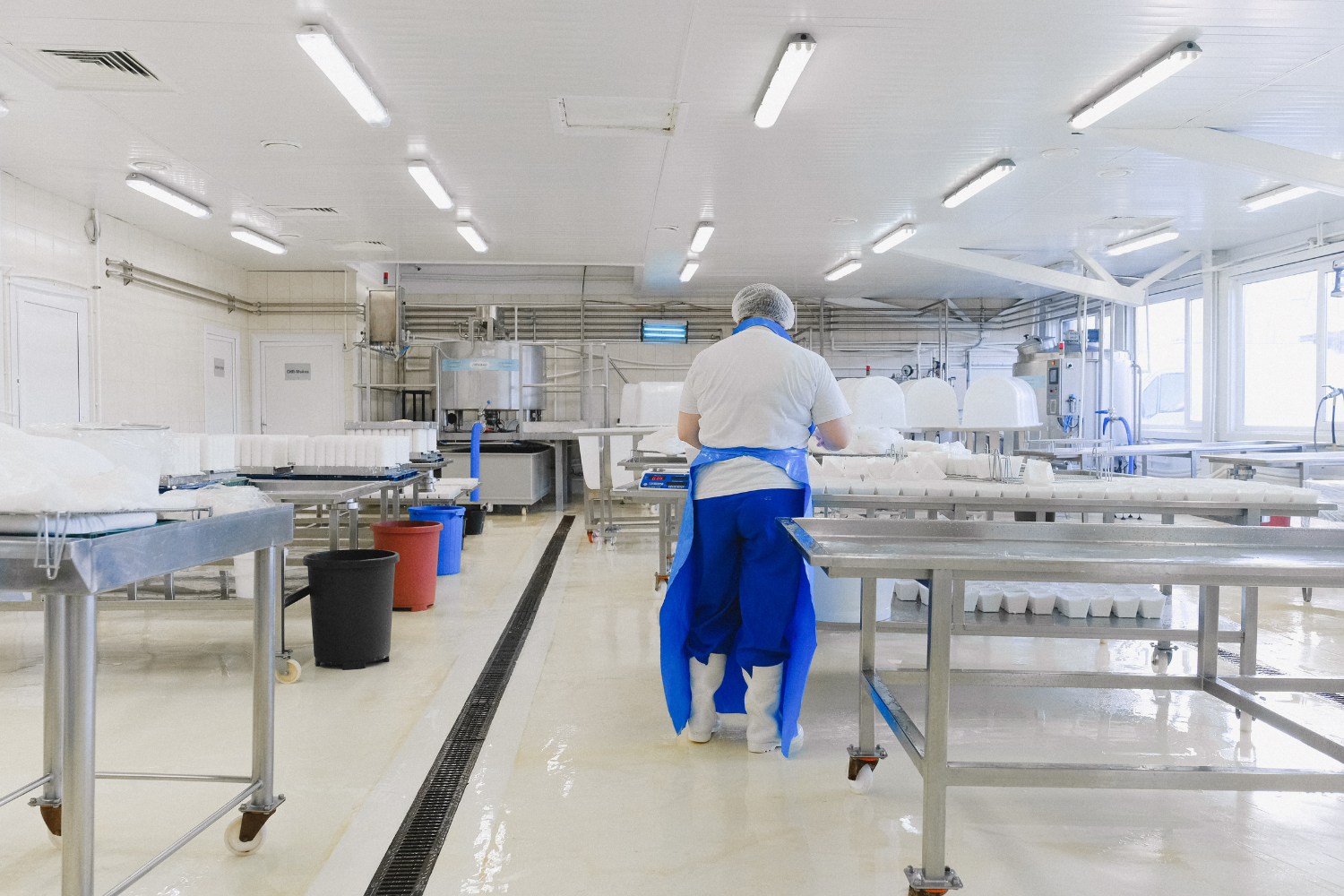Choosing between local and global supplement manufacturing directly impacts cost efficiency, product quality, supplier communication, and production timelines. Many brand owners and health entrepreneurs entering the nutritional supplements market underestimate the importance of manufacturing location—often realizing its significance only after facing delays, compliance issues, or misaligned expectations.
This article examines dietary supplements through the lens of manufacturing geography, comparing the advantages and challenges of local production versus global market sourcing. From dietary supplement health regulations to quality control measures and rising consumer demand for high-quality supplements, understanding the full scope of local and global operations will help you select the right partner for your supplement brand.
Table of Contents
ToggleWhat’s the Difference Between Local and Global Supplement Manufacturers?
Local vs global supplement manufacturing refers to where your dietary supplement products are made—domestically or internationally. Local manufacturing typically means working with U.S.-based supplement manufacturers, which can simplify compliance with FDA regulations and current good manufacturing practices. Global supplement manufacturing, on the other hand, involves international partners in countries like China, India, Canada, and the Philippines.
Depending on your brand’s location, “local” could mean something different, but the key difference lies in geographic proximity, regulatory alignment, and supply chain logistics. Choosing the right option depends on your business goals, budget, and how much control you want over the dietary supplement manufacturing process.
| Feature | Local Manufacturers (U.S.-based) | Global Manufacturers (International) |
|---|---|---|
| Location | Based in your home country (e.g., U.S.) | Located overseas (e.g., China, India) |
| Regulatory Oversight | FDA generally responsible, easier compliance | Varies by country, more complex regulations |
| Shipping Time | Faster delivery within local markets | Longer lead times, risk of delays |
| Communication | Easier due to shared language and time zone | Can be difficult across time zones/languages |
| Manufacturing Costs | Higher labor and facility costs | Lower costs, attractive for startups |
| Quality Control | Easier to inspect and audit | Requires more trust and verification |
| Market Appeal | U.S.-made appeals to local consumers | May require extra marketing reassurance |

Pros and Cons of Choosing a Local Manufacturer
Working with a local supplement manufacturer offers advantages in communication, quality control, and aligning with FDA regulations governing dietary supplements. For brands focused on responsible nutrition and building trust through transparency, local production can improve oversight of the manufacturing process. However, domestic manufacturing often comes with higher costs and smaller production flexibility, which can affect startups or businesses testing new dietary supplement product lines.
| Pros & Cons | Details |
|---|---|
| ✅ Easier communication and time zone alignment | Faster response times and fewer misunderstandings |
| ✅ Easier to visit facilities or request audits | Improves quality control measures and builds trust |
| ✅ Perceived quality and U.S.-based marketing advantage | “Made in USA” supports health claims and consumer demand |
| ❌ Higher costs and limited MOQs for startups | Manufacturing costs and minimum order quantities may be barriers |
| ❌ Possible production delays due to demand saturation | Limited capacity during peak periods can slow delivery |

Pros and Cons of Choosing a Global Manufacturer
Global supplement manufacturing can help you lower costs, meet rising consumer demand, and scale quickly. It provides access to raw materials like amino acids, vitamins, and other food substances that may not be as readily available or cost-effective locally. Still, the drawbacks include longer shipping times, more complex logistics, and regulatory risks—especially regarding dietary supplement advertising, labeling, and claims.
| Pros & Cons | Details |
|---|---|
| ✅ Lower costs and competitive MOQs | Ideal for startups or cost-conscious brands |
| ✅ Access to specialized ingredient sources or niche formulations | Easier to source unique dietary ingredient intended for specific health benefits |
| ✅ Faster scaling options for larger volume | Suitable for brands targeting global presence and rapid market growth |
| ❌ Time zone and language challenges | Slower communication can delay decision-making |
| ❌ Harder to verify compliance or visit the facility | Difficult to confirm adherence to good manufacturing practices |
| ❌ Longer lead times and possible shipping disruptions | Increases risk of delays and missed timelines |

How Location Impacts Quality Control and Compliance
The location of your supplement manufacturer affects how well they follow safety standards and government regulations. It also determines how easily you can monitor the manufacturing process and ensure that your products meet legal requirements for dietary supplements.
U.S.-based manufacturers must follow FDA cGMP regulations
U.S.-based manufacturers must follow the FDA’s current good manufacturing practices (cGMP), part of the federal Food, Drug, and Cosmetic Act. These regulations require manufacturers to maintain clean facilities, proper equipment, and trained staff to help ensure safe production.
U.S. manufacturers and marketers are subject to FDA inspections and must report serious adverse events under federal law. These standards are intended to reduce the risk of unsafe practices in the manufacturing of supplements such as vitamins, minerals, and weight management products.
Some overseas manufacturers meet or exceed these—but not all
Many international supplement manufacturers operate under their own national regulatory framework. Some follow guidelines similar to FDA standards, while others do not. For example, countries like Canada have rules for functional foods and dietary supplement health products.
Some overseas manufacturers meet rigorous standards and maintain strong manufacturing practices, but others may cut corners. It’s your responsibility to ensure global partners understand nutrient content claims, nutrition labeling, and the role of the FDA in regulating dietary supplement advertising.
Always ask for third-party certifications and audit history
No matter where your manufacturer is located, ask for documentation like ISO certifications, audit history, and test results for raw materials. These third-party verifications can confirm compliance with quality control measures and food safety guidelines.
Responsible nutrition starts with transparency, especially with raw material suppliers handling dietary ingredients, amino acids, or other food substances. You should also ask for reports on serious adverse events and compliance with the Dietary Supplement Health and Education Act.

How to Evaluate Whether a Global Manufacturer is Reliable
If you’re considering supplement manufacturing overseas, you must do your homework. Some manufacturers offer great pricing and capabilities, but you must check that they follow proper standards and are transparent with their operations.
Ask for English-translated documentation (ISO, FDA, etc.)
Reliable global manufacturers should be able to provide English-translated copies of key certifications and compliance documents. These may include ISO 9001 for quality control, GMP certifications, and statements about FDA compliance if they plan to export to the U.S. This step helps ensure the manufacturer understands nutrient or dietary ingredient guidelines and the importance of labeling dietary supplement products correctly.
Use sourcing platforms like Alibaba, GlobalSources, or ThomasNet
Platforms like Alibaba, GlobalSources, and ThomasNet can help find global supplement manufacturers. These websites allow you to compare suppliers, read reviews, and see what kinds of dosage forms, such as tablets or liquid supplements, are offered.
These platforms provide access to supplier profiles and product information, but further verification of regulatory compliance is necessary.
Consider hiring third-party QA firms to inspect facilities
To lower your risk, you can work with third-party quality assurance (QA) firms that specialize in inspecting overseas facilities. These firms check the manufacturing process, raw materials, and compliance with good manufacturing practices. They help verify claims made on dietary supplement labels and ensure the manufacturer can meet your standards for consumer safety and supplement health and education compliance.
When Should You Consider Going Global First?
Global supplement manufacturing may be better if your brand works with a small budget. Lower minimum order quantities (MOQs) and reduced startup costs can help you launch a new dietary supplement product without a large upfront investment. This is especially useful when testing niche formulations or developing cost-effective sports nutrition or functional foods.
You may also consider going global if you or your business partner have experience sourcing ingredients or vetting international manufacturers. A reliable overseas supplement manufacturer can help you meet rising consumer demand and achieve market growth, especially if you plan to expand your global presence. Just balance cost savings with proper checks for quality and compliance.
When is Staying Local a Smarter Choice?
If your supplement brand highlights “Made in USA” for trust and quality, working with a local manufacturer can strengthen your marketing and build consumer confidence. U.S.-based production supports compliance with FDA regulations, accurate dietary supplement labels, and better control over how your dietary supplement product is made and marketed.
Local manufacturing also makes sense if you need quick turnaround, easy facility access, or smaller production runs. It’s easier to visit the manufacturing facility, perform audits, and stay aligned with current good manufacturing practices. Fast restocks and close communication can give your brand a competitive edge in local markets, especially when responding to rising consumer demand for nutritional supplements.
Can You Do Both? Hybrid Manufacturing Strategies
Some brands choose a hybrid approach—sourcing raw materials like amino acids or vitamin C globally but completing the final product assembly through a local supplement manufacturer. This allows for better control of quality while reducing ingredient costs. For example, a sports nutrition brand might import specialized dietary ingredients and rely on a U.S. facility for blending, packaging, and labeling.
Hybrid manufacturing also helps diversify your supply chain. Splitting production between local and global suppliers can reduce shipping risks, manage costs, and keep up with market growth. Many startups begin locally, then scale into global markets once they’ve built brand recognition and secured repeat customer demand.
Choose a Location Strategy That Matches Your Brand Vision
Choosing between local and global supplement manufacturing isn’t a one-size-fits-all decision. Both options have unique trade-offs, from cost savings and ingredient sourcing to quality control and shipping speed. The key is aligning your manufacturing location with your brand’s long-term goals, operational capacity, and marketing strategy.
Founders should evaluate their product roadmap, regulatory needs, and growth targets before committing to a single supply chain path. Thinking ahead helps you stay flexible and competitive as your supplement brand grows.
Frequently Asked Questions
Is it better to use a local or global supplement manufacturer?
It depends on your priorities—cost, speed, control, and marketing strategy all matter.
Are global supplement manufacturers safe and reliable?
Many are, but you must carefully verify credentials, track records, and certifications.
Why are overseas manufacturers cheaper?
Lower labor and facility costs often result in lower prices and more flexible MOQs.
Can I split production between local and global manufacturers?
Yes—many brands use hybrid models to balance cost, speed, and flexibility.
How can I verify a global manufacturer’s quality and compliance?
Use third-party audits, ask for certifications, and verify with sourcing platforms.
References
- Federal Trade Commission. (2001). Dietary Supplements: An Advertising Guide for Industry. https://www.ftc.gov/system/files/documents/plain-language/bus09-dietary-supplements-advertising-guide-industry.pdf
- International Organization for Standardization. (2015). ISO 9001:2015 – Quality management systems. https://www.iso.org/standard/62085.html
- U.S. Food and Drug Administration. (2025). Current Good Manufacturing Practice (CGMP) Regulations. https://www.fda.gov/drugs/pharmaceutical-quality-resources/current-good-manufacturing-practice-cgmp-regulations
- U.S. Food and Drug Administration. (2024). Dietary Supplements. https://www.fda.gov/food/dietary-supplements
- U.S. Food and Drug Administration. (2024). Questions and Answers on Dietary Supplements. https://www.fda.gov/food/information-consumers-using-dietary-supplements/questions-and-answers-dietary-supplements





